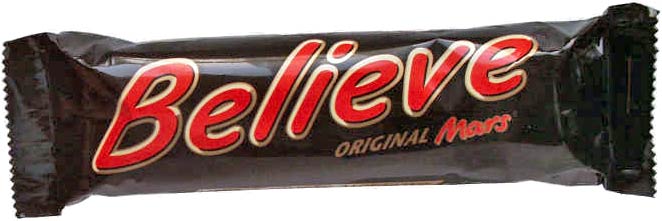
We trust our vets as professionals, and trust the diets they recommend for the optimum health of our pets. So why, you may ask, do I rate the foods commonly recommended by vets so poorly?
I’ll be specific and refer you to my reviews of Advance, Hills Science Diet and Prescription Diet, Royal Canin, Eukanuba, and lastly Optimum (as recommended by Bondi Vet Dr Chris Brown), all rated 2 stars out of 5.
My reviews are based on ingredients and guaranteed analysis. Cats are obligate carnivores. Dogs are carnivores too (not omnivores like you’re led to believe). Due to that simple fact my Rule #1 is a pet food should primarily consist of meat. At least 2 of the 5 foods listed above do not conform to that rule, instead having the primary ingredient being a much cheaper selection of grain – corn in one, and brewers rice in another. It doesn’t take much investigation to discover these aren’t decent ingredients, with the latter being a by-product of the beer brewing industry sold off dirt cheap as a waste product.
All the above “premium diets” have a number of ominous ingredients and “fillers”. Many use scientific wording aimed to trick you (you often hear “corn” is a filler, so listing it as “maize” is a way for manufacturers to conceal the use of corn). Labeling tricks are used such as “splitting” to make the ingredients appear better than they are (when the first ingredient is meat, and the next two are a combination of corn and corn flour – what we really have is a corn-based food). We find marketing words and phrases which in truth are meaningless, such as the word “premium” which says nothing about the quality of a food.
Ingredients and guaranteed analysis can tell a vastly different story to what the packaging tells us, and you’ll find the spiel on manufacturer websites is designed to tell you what they want you to believe. Have a read yourself, and consider the real reason for the wording they use.
Vets, in general, aren’t aware of the plethora of factors and marketing tricks used by pet food manufacturers. Why would they be? There’s a vast difference between your GP and Dietitians – they’re two different jobs entirely. Vets are trained to advise a diet based on a medical condition, such as a cat suffering kidney dysfunction should be fed a diet low in protein and low in phosphorous. Enter our offerings of Hills k/d, Royal Canin Renal, and so forth. Yes, they tick the boxes as far as low protein and low phosphorous go, but lets consider this a little further. Protein (read this as high quality meat protein) is an essential lifeblood for cats. They need this to maintain health, organ function, and muscle mass. But if you investigate these prescription diets we find a worrying opposite – they actually cut down on quality meat proteins and substitute them with poor quality grain proteins which do little for your pet’s health but do wonders for the manufacturer’s profit margin. You’ll also find advisories on some of these diets stating they should only be fed for a period of weeks, the reason being they’re not healthy or balanced.
Here’s an excerpt from an email I received from a veterinary professional with almost 20 years experience having graduated with a BVSc in 1997:
Vets are not nutritionists on the whole. We don’t have (well I didn’t anyway, all those years ago) a large number of lectures devoted to nutrition, not in excruciating detail at any rate. I do recall the excursion we had to Mars in Wodonga to see where their range of pet foods is made.
That statement tells us two things. The first is that pet nutrition isn’t studied in depth on veterinary courses, and secondly we see the involvement of Mars, one of the largest manufacturers of pet care products worldwide, and the company behind Advance, Iams, Eukanuba, Optimum, Royal Canin, Pedigree, Whiskas, and others.
University courses across the world (including Australia) are influenced by major manufacturers who produce the foods our vets recommend, the likes of Mars, Nestle, Proctor & Gamble, and Colgate-Palmolive. These companies, with a huge marketing budget and reams of clout, actually fund and provide study material to veterinary students teaching them what diets they should recommend. I’m sure you can see the problem with those facts. It’s pure marketing genius, training the people who tell you, the consumer, what you should be paying $$$s for to maintain the health of the pet you love.
Vets have an important role in ensuring our much-loved pets remain healthy, but it’s always worth considering the foods they recommend are very cleverly marketed with an inflated price tag aimed at you, as a consumer, willing to pay a premium price to ensure your pet has the best diet possible. Whether the diet really is the best diet possible is a different question entirely, and one us pet parents should thoroughly consider.

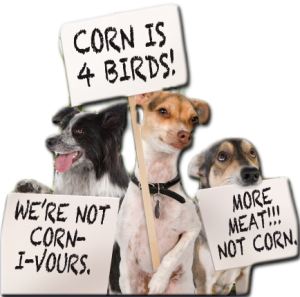
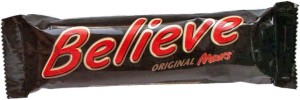
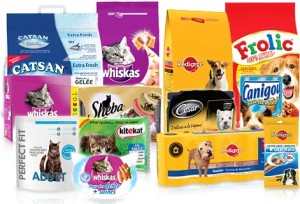



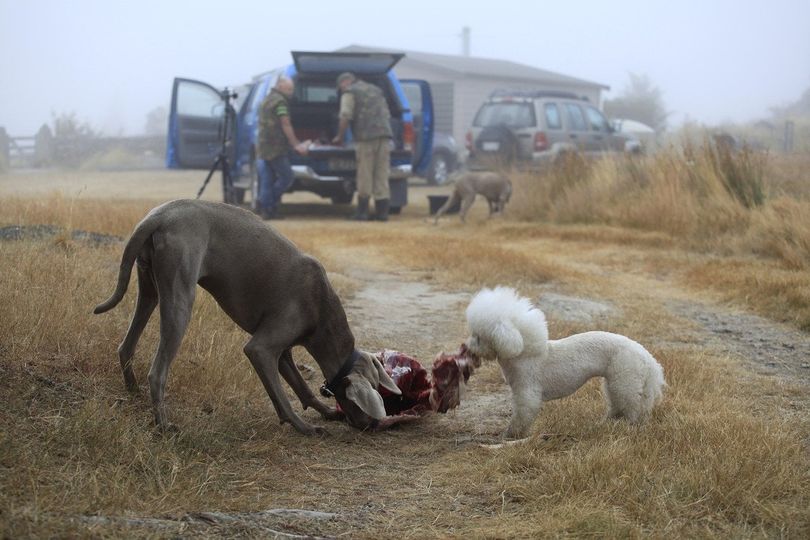
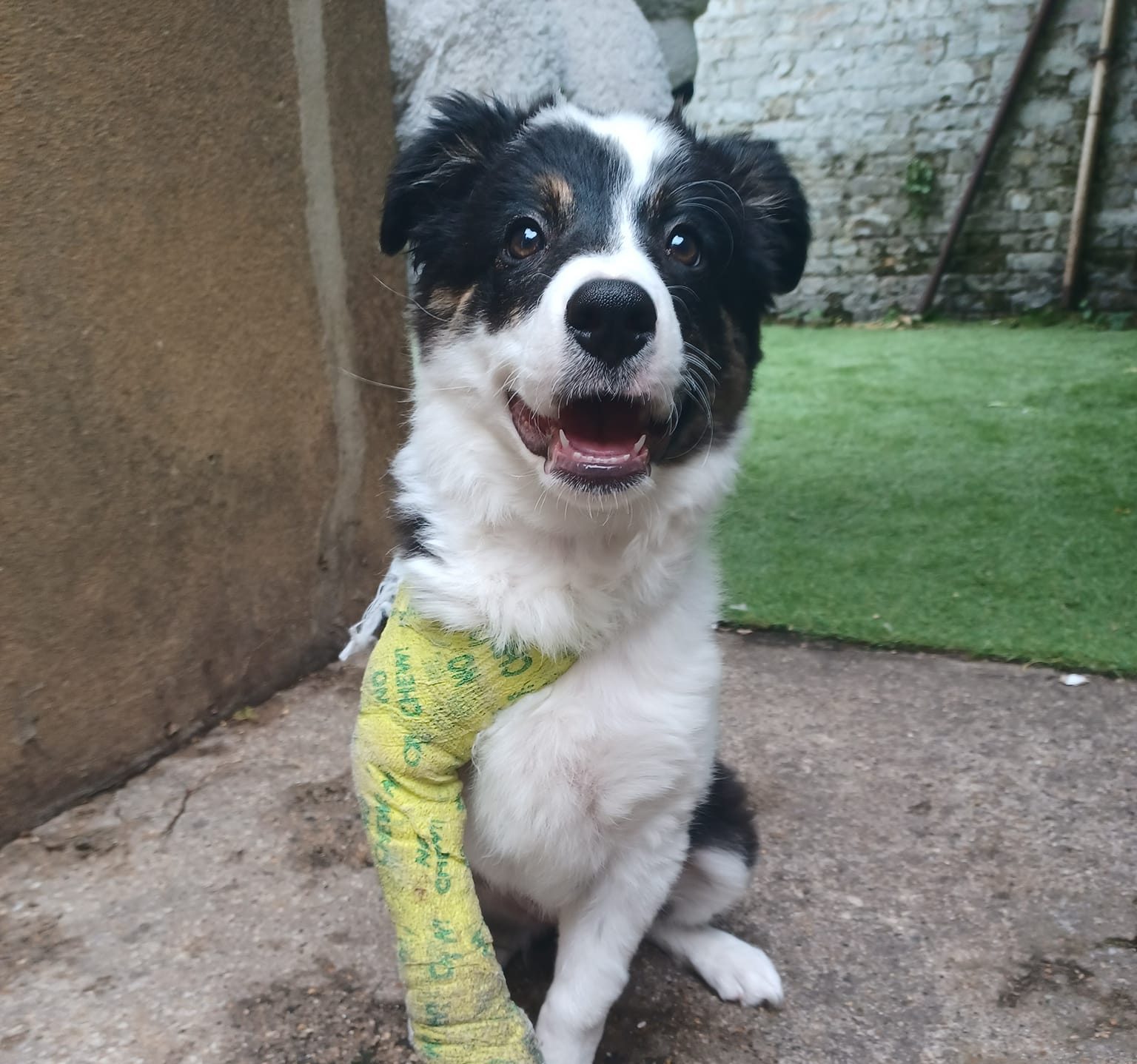
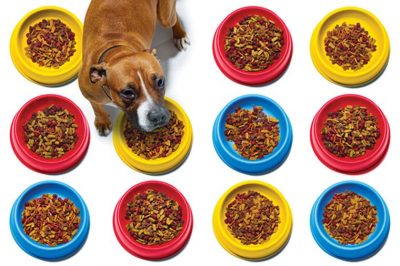
I’ve fed my golden retriever pup (7 months) on Blackhawk Puppy until he developed diarrhea – with the vet we resolved it wasn’t a bacterial problem, so tried altering food – the vet pointed us to Royal Canine Sensitive and this seems to have sorted out the problem. But, reviews here suggest it’s not in the top list of puppy food. Is there another that might be sensitive to potential allergies that is a better product? One point is that someone told me Blackhawk recently changed owners – is this true? If so the manufacturing might be different? Any comments?
Hi Laurie, diarrhea seems common with Black Hawk (see the comments on the Black Hawk reviews). If it’s an allergy or intolerance then you may find any grain free foods are fine as grains are the most common causes of this, or it may just be an issue with the Black Hawk or one of the ingredients they use. The company was bought up my Masterpet and a while later revised their formulas.
I think the addition of the word “premium” is probably an accurate description on some of these supermarket brands. i.e. We are charging you a “premium” for what is (in essence) junk food made from by-products. The food quality isn’t premium but the price we are happy to charge you is premium!
Yes that’s indeed what it is and those who don’t check ingredients lists are getting totally fooled by it.
In essence I think their still cheaper than stuff like Royal Canin and some Hills products, those guys are seriously taking fake pricing to the limit as nothing in their formulas is worth that much.
I joined Australian Pet Parents Association (APPA) website to find the truth about pet food.
hi SAM
can you comment on the biscuit size of the different foods as we like to feed our silky the larger biscuits as she just hoovers down the smallish one and vomits them up and re eats them
but its hard to find quality one that are large
Hi there! I was just wondering if you have any literature to support the claim that cats are obligate carnivores and dogs are also carnivores? My understanding is that there is a lot of debate about this in the scientific community. I am inclined to agree with these statements but it would be good to have something more concrete than just opinion to back this up.
I was also wondering how you define good quality meat vs poor quality meat? Just because something is a waste product from another industry does this necessarily mean it is poor quality? Sorry to bombard you with questions! Overall I think your website is a really great resource for evaluating the various pet food out there as it can be quite overwhelming!
Dr Francis Pottenger (Medical Doctor) conducted the world’s longest/largest cat-diets study over ten years (1932 – 1942) using 900 cats over 3 generations of cats using RAW MEAT vs COOKED. Guess which diet produced the healthiest cats? The Answer = uTube “Pottenger’s Cat-Diets Will Effect Future Generations”. Also, Pottenger is on wikipedia
Hi Sam, the question as to whether a dog is a carnivore or omnivore is open to debate, but science tells us they’ve descended from wolves (carnivores) and have a number of carnivores traits – a short digestive tract, stomach acid to cope with raw and rank meats, and a dental structure and chewing habits of a carnivore. Herbivores and omnivores produce the enzyme amylase in their salivary glands which aids in breaking down starchy carbohydrates. Dogs don’t produce amylase in their saliva but they do further down the digestive tract, which gives them the ability to digest carbohydrates in an omnivorous diet. Therefore by design they are carnivores who’ve adapted to survive off an omnivorous diet.
Your second question is also a good one. You’ll find in my reviews I often discuss by-products as a bad thing, but we know dogs (and cats) have a natural diet of offal which is fundamental to their health. Many organs are rich in nutrients which aren’t found in muscle meats, so it could be said by-products are fundamental to the diet of a cat or dog. The issue with by-products in the pet food industry is the quality of the ingredient (or lack of quality), as by the time it gets into the bin labelled “For pet food only” most nutritional parts have been removed, including organs which can be sold for human consumption, leaving us with waste. The quality of meat in a pet food is always difficult to quantify, whether it’s listed as “chicken”, “chicken meat”, “chicken by-products”, “poultry by-products”, or the generic “meat by-products”.
Whenever my vet recommends Advance (which is every damn time I take my dog in there), I scoff and reply with, “I wouldn’t want to live off anything made by the Mars company, so why should my dog?”
Hooray for that! Vets are trained in PET FOOD NUTRITION not CARNIVORE NUTRITION. Pet Food Science is Tobacco Science. Previously, Medical Doctors were paid by Tobacco companies to say “Tobacco is good for you”. Today, vets are paid by Pet Food companies to say “processed food is healthier than fresh food”. Just like Coca Cola is healthier than water.
That is an awesome thing to say its a wonder he/she hasn’t gotten the message yet, must be sleeping as always :p.
What qualifications do you have?
Hi J.J, you can read all about myself and my motivations here – https://www.petfoodreviews.com.au/about/
I’ve been involved with pet foods for many years, dealt with manufactures and consumers alike, veterinary professionals and professors, as well as a great deal of research.